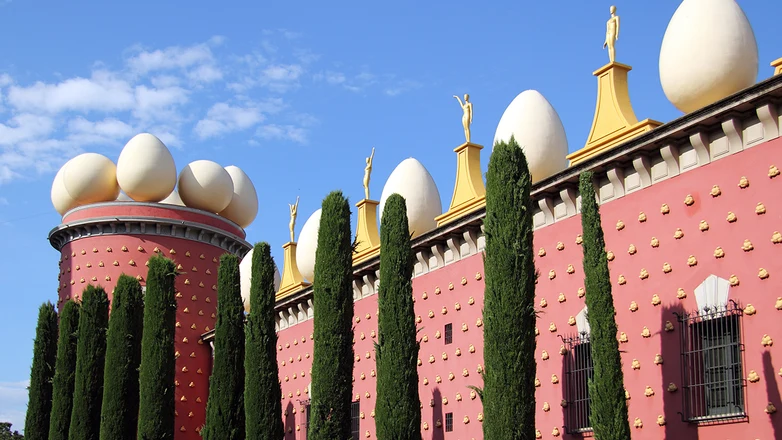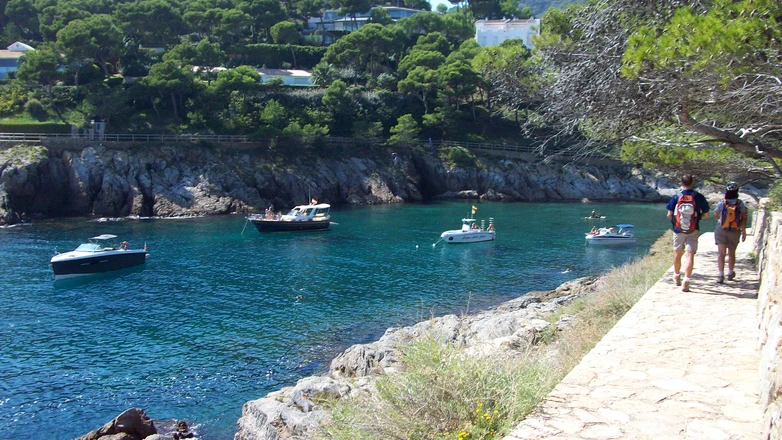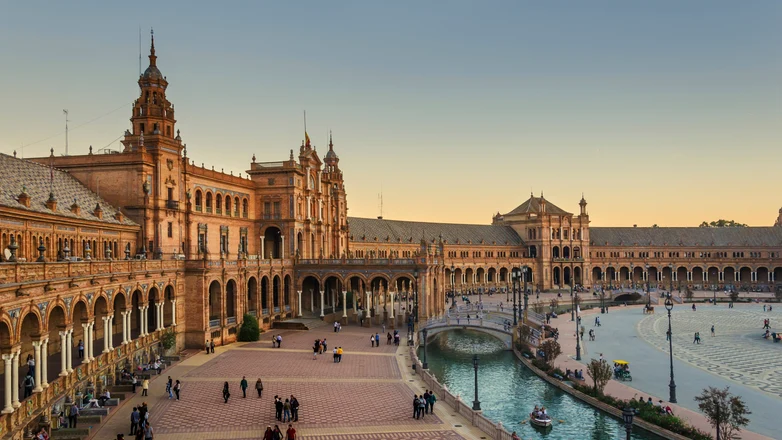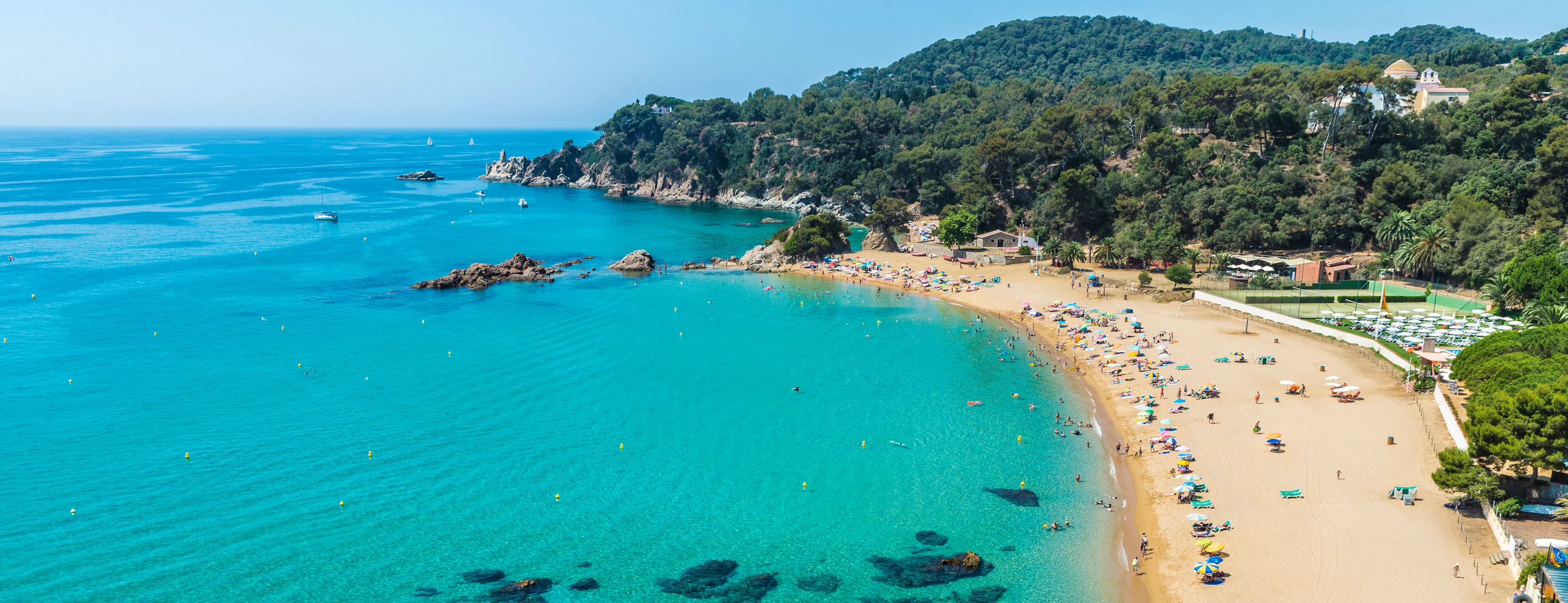
Book with confidence
Travel information Spain
Travel information Spain
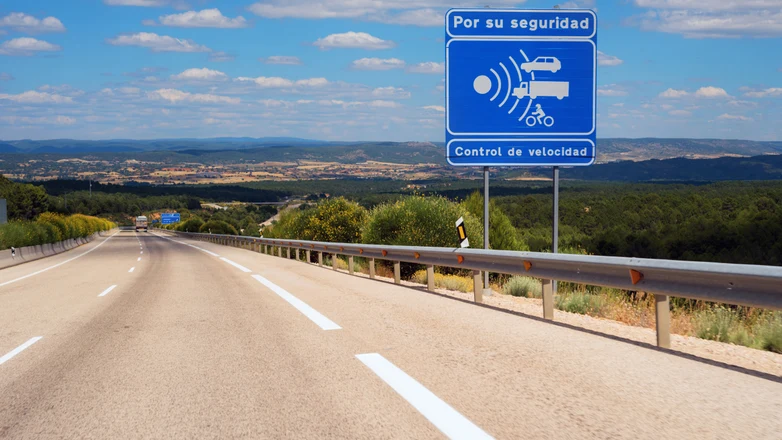
Environmental Sticker
Since 2023, you need an environmental badge in every city in Spain with a population of more than 50,000. Also known in Spain as the 'distintivo ambiental DGT'. Spanish environmental stickers cannot be obtained for foreign vehicles. French, Danish, German, or Austrian environmental stickers are only valid in Spain. So no separate environmental sticker for just Spain is needed. Would you like to visit Barcelona for a day by car, for example? Then park outside the city centre, make sure you have one of the above-mentioned environmental stickers, or apply for a day permit here.
Toll Roads
In Spain, you pay tolls at many motorways. Tolls can be paid in euros, by credit card, or with the toll badge. With the toll badge, you pay electronically and do not have to wait long at the toll booths. Toll badges can be bought at here , among others, and are valid in 4 countries: Spain, France, Italy, and Portugal.
Fuel
Fuel prices are similar to Dutch prices. Filling up along the motorway is often more expensive than along normal roads in Spain too. Want to fill up or load up cheaply? Then look for a petrol station near a supermarket, in the countryside or near an industrial estate.
Charging Stations
Spain is in the process of expanding its charging station network, but at the moment it still takes some planning to travel to Spain with an electric car. Along the way, you'll come across plenty of fast chargers, but note that only 30% of all charging stations are public.
Important Rules
In Spain, it is compulsory to have a warning triangle, a safety vest, and a spare wheel in the car. If you are traveling with a trailer or caravan, you are obliged to carry a fire extinguisher.
Furthermore, in Spain you can be fined if you eat or drink while driving, smoke a cigarette, or drive barefoot and there are more strict rules while driving. Be sure to read all the rules of the road beforehand.
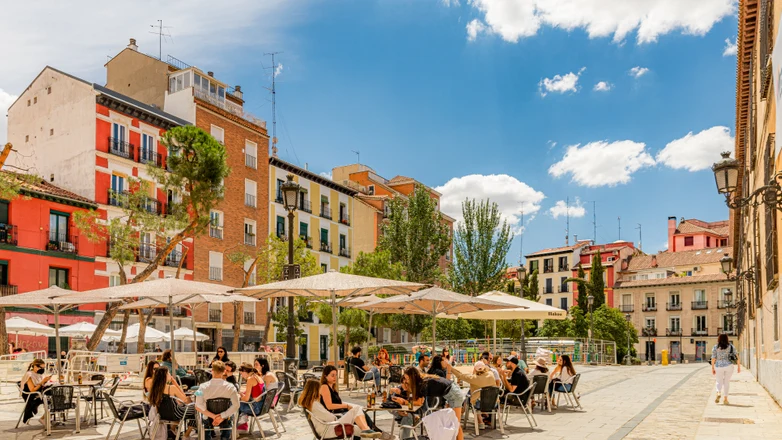
Weather in Spain
Spain is a large country with different climates.
- On the Costa Brava, summers are pleasantly warm and not too hot.
- On the coast in southern and eastern Spain (Costa Dorada and Costa Blanca), summers are hot and dry. This is the perfect place to spend the winter.
- Seville is the hottest city in Europe. Here in the Andalucíaregion, temperatures regularly exceed 40 degrees in summer.
- In the northwest of Spain (Cantabria and surrounding areas), summers are a lot cooler with temperatures around 20 degrees.
Water from the tap
Tap water in Spain is generally safe to drink. Not a fan of the chlorine-like taste or prone to stomach upsets? Bottled water is available everywhere.
Cuisine in Spain
Anyone thinking of a holiday in Spain undoubtedly also thinks of all the goodies Spanish cuisine has to offer. From delicious tapas with homemade sangria to traditional paella on the terrace. That is something to look forward to!
The big supermarkets are often open daily between 10 am and 9 pm. In summer, many shops, and therefore supermarkets, are closed between 2 pm and 5 pm. Well-known supermarkets are Mercadona, Carrefour, and Bonpreu, but in Spain, you will also find a Lidl and an Aldi. In Spain, dinner is started a lot later than what you are used to in Ireland. If you stay at the campsite for dinner, though, you can get there early. Tipping is not compulsory in Spain, as service charges are already levied everywhere.
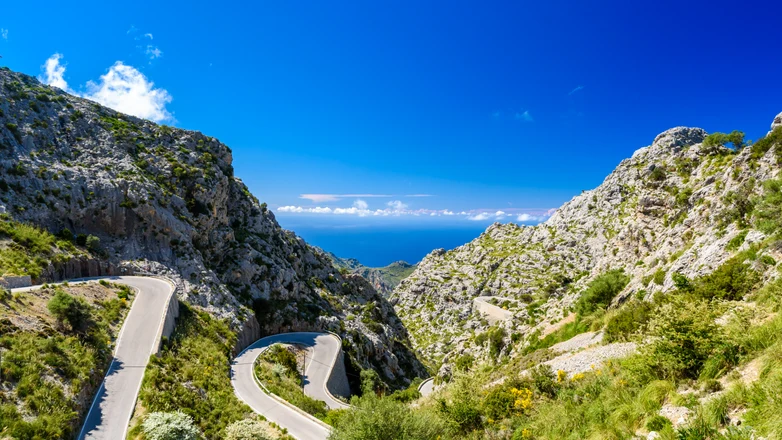
By car
There are 2 ferry routes connecting Ireland with Spain, starting from the port of Rosslare which is located in southern Ireland and is connected with Bilbao and Santander in Spain.
Winter in Spain
Are you going to Spain in winter? Bear in mind that it is then compulsory to have winter tyres on certain roads (especially on mountain passes) in winter conditions. Don't have winter tyres? Then make sure you have snow chains with you.
By plane
Spain has many airports scattered throughout the country. The best-known airports to fly into are Barcelona, Girona, Valencia, and Madrid Barajas Airport. At all these airports you can easily hire a car to drive further to your holiday destination.
Public transport
Public transport is also a good option in Spain. Trains connect all major cities. Buses are very well organisd in Spain and also take you easily to the smaller towns and villages. There are also plenty of taxis in the big cities, but they can be quite expensive.

Healthcare
Spanish healthcare is of good quality. The European Health Insurance Card (EHIC) entitles you to necessary medical care during your holidays in Spain. Pharmacies in Spain are easily recognised by the green cross. The European emergency number 112 also applies here.
Money matters
Payments in Spain are made with the Euro. ATMs are plentiful and payments can be made almost everywhere by debit and credit cards.
Sockets
In Spain, there are two associated plug types, types C and F. Plug type C is the plug that has two round pins and plug type F is the plug that has two round pins with two earth clips on the side. Spain operates on a 230V supply voltage and 50Hz. It may be handy to bring 2 pins, a domestic Euro conversion plug
Traveling with the dog
Spain is a dog-friendly country, but not all dogs are allowed. For your dog or cat, you need an EU pet passport, available from the vet. Dogs and cats must be vaccinated against rabies at least 21 days before travel. The mandatory chip must have been inserted before the rabies vaccination (may be on the same day). More information can be found here. Because this vaccination may only be given from 12 weeks, puppies or kittens younger than 15 weeks may not be taken to Spain.
Top sights in Spain
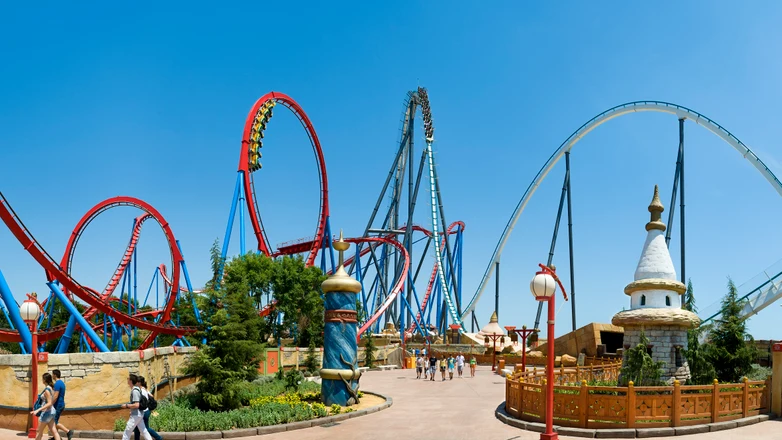
PortAventura
Ready for an adrenaline rush for the whole family? PortAventura World is Spain's largest theme park and is close to bustling Salou. Each of the 6 parks is fully themed and there is something for all ages to enjoy. Are you on holiday in the Costa Dorada? Then don't miss this theme park!
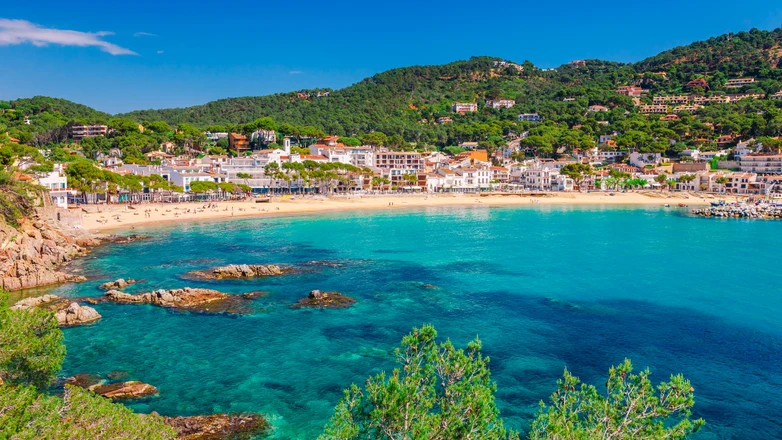
Beaches of Spain
Surely one of the biggest reasons for holidaymakers to come to Spain is its beautiful beaches. Whether you are staying on the Costa Brava or the Costa Dorada, there is always a great spot on the beach. Do you go for a quiet beach between the cliffs or do you look for cosiness on the more famous beaches? It's always enjoyable anyway!
Disclaimer: The information on this page has been carefully compiled. However, we do not accept any liability for incorrect or incomplete information. The links we use to other websites are for information purposes only. These websites are not maintained, checked, or approved by us. As a traveler, you are responsible for having the correct (border) documents for your holiday. We advise you to check the latest info with the appropriate authorities just before your holiday.


